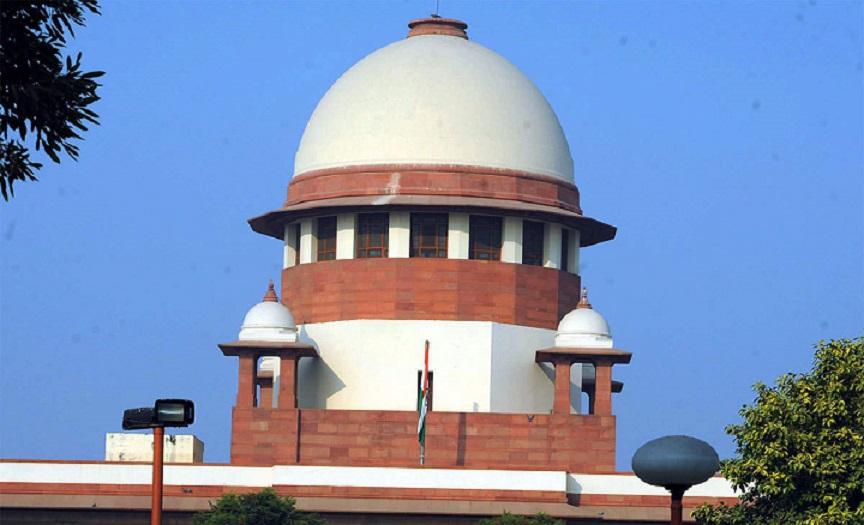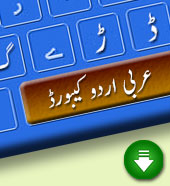Live Makkah
Live Madinah
Urdu Font Download
Latest News:
Padubidri: Fishing boat capsizes; all 7 fishermen on board rescued Alleged atrocity on lawyer: Punjalakatte SI suspended Moral policing at jewellery shop: 4 arrested Bajrang Dal activists try to assault youth, girlfriend in Mangaluru SC to hear Bilkis Bano’s plea against release of 11 convicts on 13 Dec Nusrat Noor: First Muslim Woman to Top Jharkhand Public Service Commission
Latest News:
Padubidri: Fishing boat capsizes; all 7 fishermen on board rescued Alleged atrocity on lawyer: Punjalakatte SI suspended Moral policing at jewellery shop: 4 arrested Bajrang Dal activists try to assault youth, girlfriend in Mangaluru SC to hear Bilkis Bano’s plea against release of 11 convicts on 13 Dec Nusrat Noor: First Muslim Woman to Top Jharkhand Public Service Commission
Plea in SC terms PIL against 1991 law on places of worship as ‘mischievous’

New Delhi, 21 Mar 2021 [Fik/News Sources]: An intervention application has been moved in the Supreme Court challenging a PIL against a law fixing August 15, 1947 as the cut-off date to maintain the character of a place of worship.
The application moved by co-Mutawalli of the Teeley Wali Masjid, a 350 year old mosque in Lucknow said the PIL filed by advocate Ashwini Upadhyay is “mischievous”, which aims at isolating the Muslim community as a separate category from the other major religious communities in India.
On March 12, the Supreme Court had issued a notice to the Centre on a PIL challenging the validity of the Places of Worship (Special Provisions) Act, 1991, which barred litigation on any place of worship for change of its character as it existed in 1947.
The matter assumes significance in the backdrop of Kashi-Mathura demands raked up by the communal forces in the country.
The Instant Writ Petition seeks to declare Sections 2, 3 and 4 of the Places of Worship (Special Provisions) Act, 1991 as ultra vires of the Constitution.
Challenging this, applicant Hasan argued that the petition ignores the Babri Masjid Vs Ram Janmabhoomi verdict which has already held that the places of worship act is part of the basic features of the constitution as it upholds secularism.
Applicant’s counsel Sarim Naved told Muslim Mirror that the PIL language is highly mischievous and objectionable which seeks to seeks to push the RSS narrative that Hindus, Sikhs, Buddhists and Jains are oppressed and indigenous while Muslims and Christians and foreigners and fundamentalist barbarians. This is a false narrative and a communal one.
“The language of the Petition is shocking. Petitioner has sought to set up an allegedly factual case of fundamentalist barbarians coming to India and destroying places of worship without providing any facts, sources or setting up a case that any such places of worship have indeed been destroyed. Bald statements have been made without any factual basis,” the applicant argued.
In effect, Naved said it is also questioning that judgment and thus seeking to reopen the Babri Masjid Ram Janmabhoomi dispute.
“The instant petition is also mischievous as it seeks to reopen the Bari Masjid / Ram Janmabhoomi dispute by attacking the exception caved out for it under the 1991 Act.”
The application contended that temples, mosques, gurdwara, churches and other places of worship. All are part of a shared Indian cultural heritage; especially the older places of worship and these cannot be categories as Hindu legacy and Muslim legacy.
The challenge to places of worship act is a mischievous challenge seeking to ignite passions. This has to be deprecated, the application said.
“The Places of Worship Act imposes a non-derogable obligation towards enforcing our commitment to secularism under the Indian Constitution”.
It further argued that disputes, which have not existed for centuries, are sought to be ignited by the petition.
The application argued that the country has been progressing unitedly but certain individuals, including the petitioner, were making attempts to divide people on the basis of religion.
Hasan contended that the top court in a verdict has observed that the Places of Worship Act, which was enacted in 1991 by the Parliament, protects and secures the fundamental values of the Constitution.
The plea added that the applicant has been defending a suit pending before a Lucknow court through which the Masjid has been assailed on the grounds that the same was once allegedly the site of a temple.
“Applicant is an interested and, indeed, a necessary party to this Petition as the TeeleyWali Masjid is currently defending a proceeding being Regular Suit No. 91/2013, currently pending before the Additional Civil Judge at Lucknow, through which proceeding the Teeley Wali Masjid at Lucknow has been assailed on the grounds that the same was once allegedly the site of a temple , a temple claim that was invented for the purpose of the suit and is completely unsupported by any historical record whatsoever”.
Applicant has challenged the maintainability of that suit on the grounds that the Places of Worship (Special Provisions) Act, 1991 specifically prohibit such proceedings.
It is unfortunate that the Supreme Court has opened the way for a re-examination of this Act. The law effectively barred courts from entertaining cases which raise disputes over places of worship that existed as of August 15, 1947. The law further provided that such cases already pending in courts would stand abated.
Prayer Timings
| Fajr | فجر | |
| Dhuhr | الظهر | |
| Asr | أسر | |
| Maghrib | مغرب | |
| Isha | عشا |







